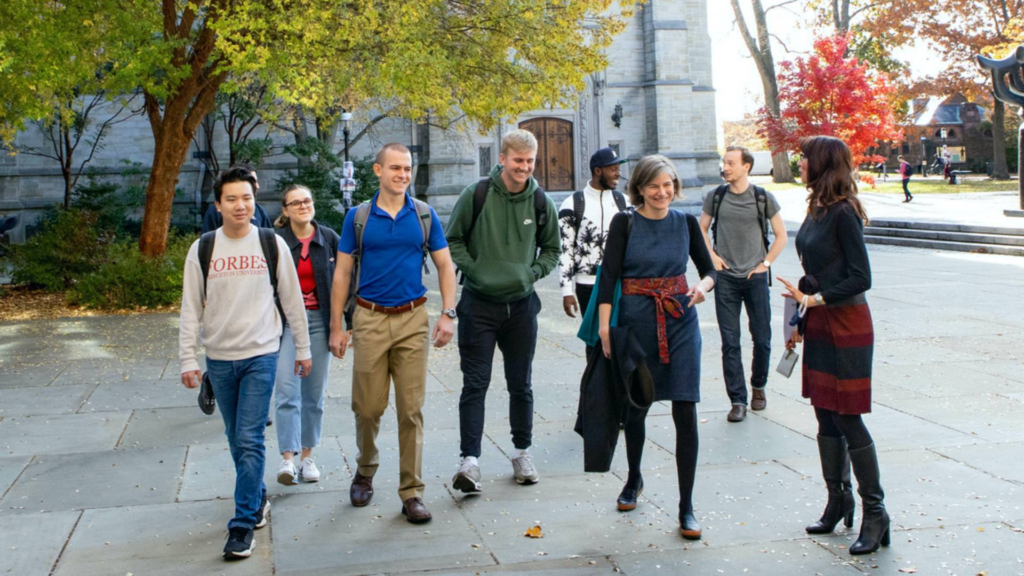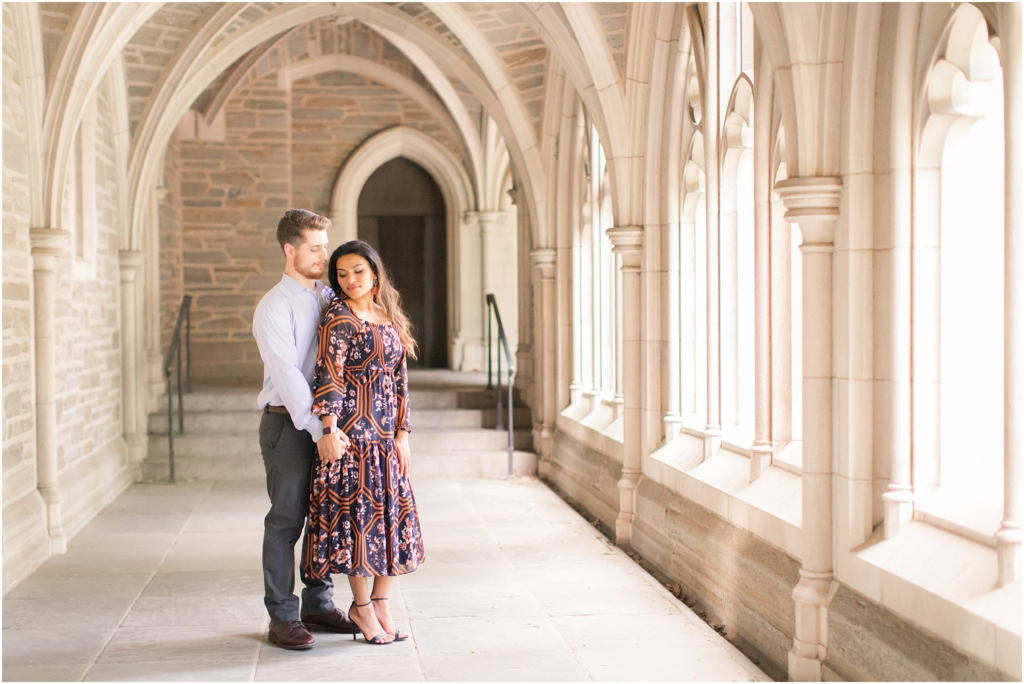Princeton University, located in Princeton, New Jersey, is one of the most prestigious and historic institutions of higher education in the United States and the world. Known for its rigorous academic programs, influential alumni, and commitment to research and innovation, Princeton consistently ranks among the top universities globally. Established in 1746, the university’s rich history, stunning campus, and dedication to fostering critical thinking and leadership have made it a beacon of intellectual pursuit.

Founding and History
Princeton University was founded as the College of New Jersey in 1746 by New Light Presbyterians in Elizabeth, New Jersey. It was initially established to train ministers, but its mission quickly expanded to offer a broader education. In 1756, the college moved to Princeton, and Nassau Hall, which remains a central landmark on campus, was built. In 1896, the institution was officially renamed Princeton University to reflect its broader educational scope.
Nassau Hall, the oldest building on campus, has played a vital role in American history. During the American Revolution, it briefly served as the meeting place for the Continental Congress in 1783. Princeton’s historic significance is also underscored by its leadership in higher education reforms and contributions to public service.
Academics
Princeton offers undergraduate and graduate programs across various disciplines, emphasizing a balance between humanities, social sciences, natural sciences, and engineering. The university’s commitment to teaching is evident in its low student-to-faculty ratio of 5:1, fostering personalized attention and mentorship. Unlike many other Ivy League schools, Princeton does not have professional schools such as law or business, focusing instead on undergraduate liberal arts education and research-driven graduate studies.
Undergraduate Program
Princeton’s undergraduate program is known for its emphasis on independent research. All undergraduate students are required to complete a senior thesis or, for certain fields, an independent project. The university’s A.B. (Bachelor of Arts) and B.S.E. (Bachelor of Science in Engineering) degrees allow students to explore interdisciplinary interests while engaging deeply with their major field.
Graduate Studies
The Graduate School at Princeton offers a variety of programs leading to Master’s and Doctoral degrees. Princeton is especially renowned for its Ph.D. programs in fields such as economics, history, public policy, and physics. The graduate programs are known for their academic rigor and focus on original research.

Research and Innovation
Princeton University is a leading center for research and innovation. With state-of-the-art facilities and numerous research institutes, Princeton supports groundbreaking work in areas ranging from theoretical physics to environmental policy. Key research centers include:
- Princeton Plasma Physics Laboratory (PPPL): A U.S. Department of Energy national lab focused on fusion energy research.
- Princeton Neuroscience Institute: Dedicated to understanding the brain and its functions.
- Andlinger Center for Energy and the Environment: Focuses on developing solutions to global energy challenges.
Princeton’s faculty includes Nobel Prize winners, MacArthur Fellows, and recipients of other prestigious awards. The university’s research has contributed to fields such as cryptography, molecular biology, and economics.
Campus and Architecture
Princeton’s 600-acre campus is renowned for its stunning Gothic and Collegiate Gothic architecture. The mix of historic buildings, modern facilities, and meticulously landscaped gardens creates an inspiring environment for learning and exploration. Notable structures include:
- Nassau Hall: The university’s oldest building, rich in historical significance.
- Princeton University Chapel: One of the largest university chapels in the world, known for its beautiful stained glass windows.
- Firestone Library: The main library housing millions of volumes, manuscripts, and special collections.
The campus is also home to the Princeton Art Museum, which contains a remarkable collection of over 100,000 works of art.
Student Life
Princeton fosters a vibrant student life with numerous opportunities for engagement outside the classroom. The university offers over 300 student organizations, including clubs for sports, arts, culture, and community service. The Princeton Eating Clubs, unique to the university, serve as both dining and social hubs for juniors and seniors.
Athletics are an integral part of student life, with Princeton’s teams, known as the Tigers, competing in the NCAA Division I Ivy League. The university has a rich athletic tradition and has won numerous national championships in various sports.

Diversity and Inclusion
Princeton is committed to fostering an inclusive and diverse community. The university has increased financial aid to ensure access for students from all socioeconomic backgrounds. Over 60% of undergraduates receive financial assistance, and Princeton’s no-loan policy ensures students can graduate without significant debt.
Cultural centers such as the Carl A. Fields Center for Equality and Cultural Understanding and the Women*s Center support diversity and inclusion efforts across campus.
Notable Alumni
Princeton’s alumni have left a significant mark on the world. Notable graduates include:
- Woodrow Wilson (Class of 1879): 28th President of the United States and former president of Princeton.
- Michelle Obama (Class of 1985): Former First Lady of the United States.
- Jeff Bezos (Class of 1986): Founder of Amazon.
- Alan Turing: Renowned mathematician and computer scientist.
Princeton’s alumni network is extensive and influential, spanning fields such as politics, science, business, literature, and the arts.
Conclusion
Princeton University continues to stand as a symbol of academic excellence, innovation, and leadership. With its storied history, commitment to rigorous education, ground breaking research, and dedication to community and inclusivity, Princeton shapes not only the minds of its students but also the future of society.